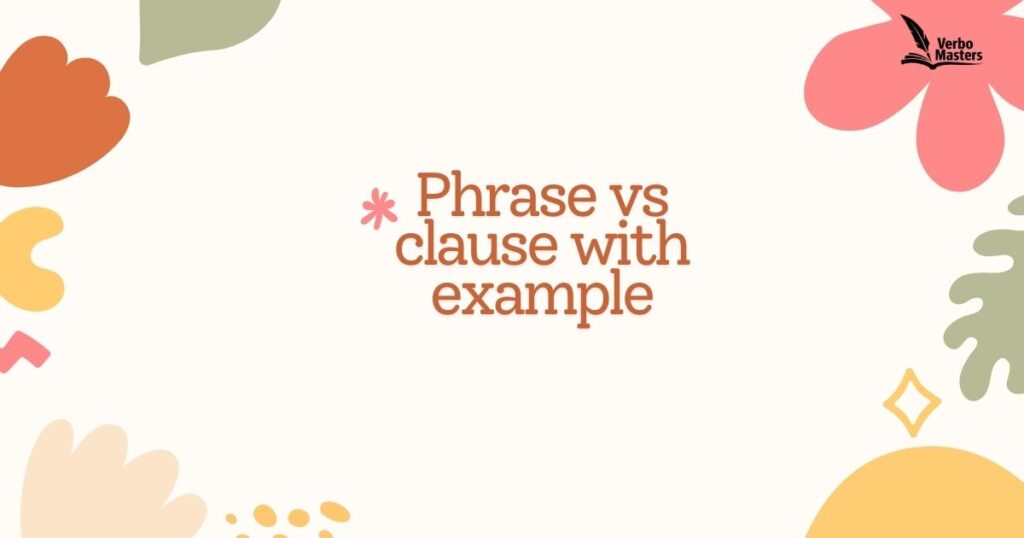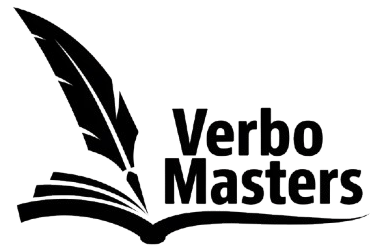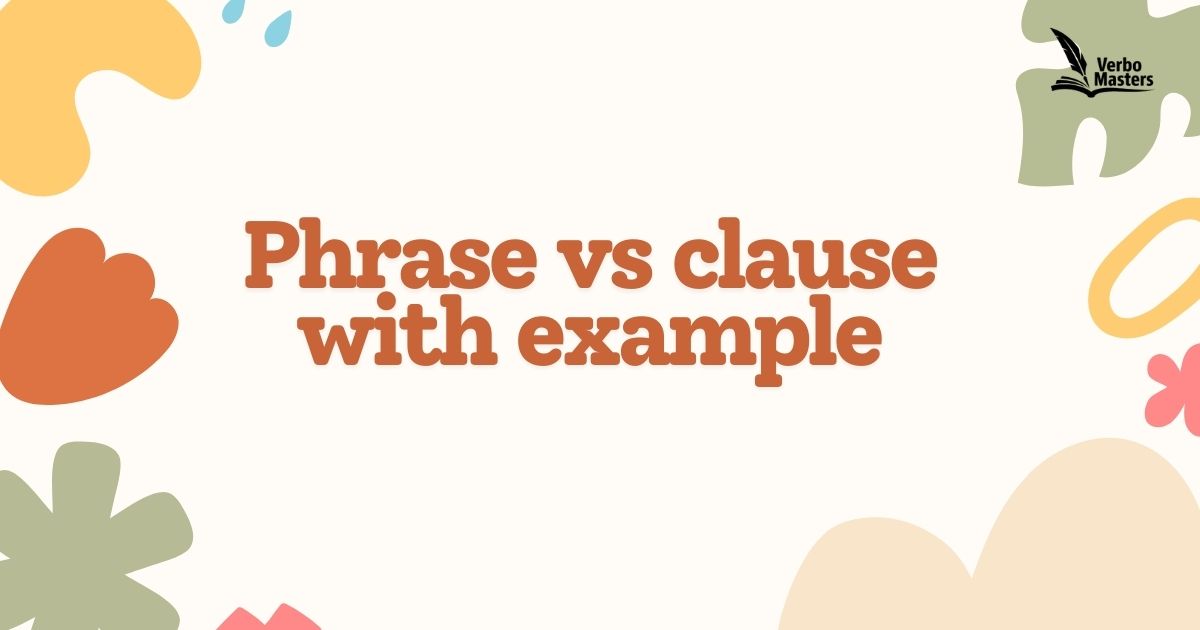Phrase vs clause with example! A phrase and a clause are both important components of a sentence, but they serve different purposes. A phrase is a group of words that work together but don’t form a complete thought. It lacks both a subject and a verb, which means it can’t stand alone as a sentence. Examples of phrases include “in the morning” or “after the show.”
On the other hand, a clause has both a subject and a verb, making it a complete idea, although it can still be dependent on another clause to form a full sentence. For instance, “She went to the store” is a clause because it has a subject (“She”) and a verb (“went”). In conclusion, phrases are incomplete units, while clauses are more self-sufficient and can stand alone or be combined with other clauses to form sentences.
You can also read; Subordinating Conjunctions Examples Sentences
Phrase vs clause with example

Phrase
A phrase is a group of words that works together but does not have both a subject and a verb, so it can’t stand alone as a complete thought. Here are three examples of phrases:
- In the morning
- Under the table
- After the meeting
Clause
A clause, on the other hand, contains both a subject and a verb. There are two main types of clauses: independent clauses and dependent clauses. Independent clauses can stand alone as a complete sentence, while dependent clauses cannot. Here are examples of both:
- Independent Clause:
- She went to the store.
- He loves to play basketball.
- They were studying for the test.
- She went to the store.
- Dependent Clause:
- Because she was tired
- Although it was raining
- If you study hard
- Because she was tired
phrases lack a subject and verb, while clauses do have both. Independent clauses can stand alone as sentences, but dependent clauses need to be paired with independent clauses to form a complete sentence.
FAQ’s
What is the difference between a phrase and a clause?
A phrase is a group of words that doesn’t have both a subject and a verb, while a clause contains both a subject and a verb, making it a complete thought.
Can a phrase stand alone as a sentence?
No, a phrase cannot stand alone as a sentence because it lacks a subject and a verb. It requires more context to form a complete thought.
What are the types of clauses?
There are two main types of clauses: independent clauses, which can stand alone as a complete sentence, and dependent clauses, which need to be paired with an independent clause.
What is an independent clause?
An independent clause is a group of words with both a subject and a verb that expresses a complete thought. It can stand alone as a sentence.
What is a dependent clause?
A dependent clause contains a subject and a verb, but it does not express a complete thought on its own. It needs an independent clause to form a full sentence.
Can dependent clauses be used by themselves?
No, dependent clauses cannot stand alone because they don’t express a complete thought. They rely on independent clauses to form a full sentence.
Can a sentence have both a phrase and a clause?
Yes, sentences can contain both phrases and clauses. For example, “After the meeting, she went home,” contains the phrase “After the meeting” and the independent clause “she went home.”
What is an example of a phrase in a sentence?
An example of a phrase in a sentence is: “In the morning,” as in “In the morning, I like to run.” It has no subject or verb, so it’s just a phrase.
Can a clause be part of a phrase?
No, a clause cannot be part of a phrase. A clause is a group of words with both a subject and a verb, while a phrase lacks either a subject or a verb.
How can I identify a clause in a sentence?
To identify a clause, look for a group of words with both a subject and a verb. If it expresses a complete thought, it’s an independent clause; if it doesn’t, it’s a dependent clause.
Conclusion
A phrase is a group of words that doesn’t have both a subject and a verb, which means it can’t stand alone as a sentence. It adds meaning to the sentence but lacks the complete structure needed for a full thought. Examples of phrases include “under the table” or “in the morning.”
A clause, however, is different. It contains both a subject and a verb, allowing it to express a complete idea. There are two types of clauses: independent clauses, which can stand alone as a sentence, and dependent clauses, which need an independent clause to make sense.

I’m John Smith, a language enthusiast dedicated to helping writers, students, and professionals master the art of clear and effective communication. Whether you’re looking for grammar tips, writing guides, or common mistake corrections, you’ll find valuable insights to improve your language skills. Let’s make grammar simple and fun!

